We love sharing stories from happy, fulfilled clients across Canada. Nothing gets us more fired up than seeing our clients succeed on every level through financial prosperity, personal development and relationship growth.
Your Success
is Our Success

Client Testimonial
“For what will it profit a man if he gains the whole world and forfeits his soul?”
Krista is incredibly gifted at nurturing and guiding souls. What a blessing it is, to have someone give so openly and generously of their own life stories and lessons, to help guide you in finding more joy, growth, hope, and love in your own.
Nathan Lau
“Jared and Krista helped us to learn more and take more action than years of books or group courses ever did. It felt like gaining decades of top-tier experience and knowledge in only months all the while building up a mindset to carry you forward.”
Tyler and UJ
“I am a real estate investor with a relatively large portfolio. I hired Jared to help improve its performance, thinking most of my problems were purely technical. Krista was part of the team too but that didn’t really interest me – at first. However, as time went on it turned out to be exactly the opposite. My technical problems were easy to fix but the biggest challenges holding me back were between my ears. Krista ended up helping me immensely. She was able to help me deal with a wide range of issues related to depression, money and self-worth that I didn’t even know I had. Literally, changed my life and helped give me hope again. I can’t thank Krista enough. My advice now to other investors out there, don’t overlook the mental aspect of investing.”
Darcy Marler
“Taking the wrong advice cost me BIG TIME. Jared helped me get my portfolio back on track.”
“You can trust what Jared says because he’s actively playing the game.”
I'd like to connect!
“You can trust what Jared says because he’s actively playing the game.”
“With J+K we made more progress in months than we have in years.”

“It wasn’t the market that was holding me back, it was me. Now I invest with confidence.”
“Taking the wrong advice cost me BIG TIME. Jared helped me get my portfolio back on track.”
“Krista helped me break through barriers I didn’t know I had.”
FAQ
You have a pretty “out there” brand comparative to others in the industry…..why?
“Brand” is a funny thing. We’ve used branding agencies in the past and they told us what we should wear and what we should say. That doesn’t work for us. We believe in being authentic which means sometimes swearing, saying it as it is, and taking a no bullsh*t approach. So many people have a “persona” which is fine if you are a performer. We are not performers. We are real people, with real experience, working with real clients. We used to belong to a real estate group, and they had something called “boots, belt buckles and bling”. The idea was to “wow” investors by showing up flashy and polished in an attempt to attract a joint venture partner. We think boots, belt buckles and bling are bullsh*t. We only want to be partners with people who are real and authentic. Those are the people you can trust. Trust is VERY important to us.
Why do you mainly invest in Edmonton?
It starts with Alberta and the favourable tenancy act which includes fast evictions, no rental raise restrictions and you aren’t mandated to rent to pets. No land transfer tax and no pst on property services is also huge. Edmonton specifically (despite what the news tells you) has a favourable rental market with in-migration and steady or growing GDP. Also, TILT, our property management company is located in Edmonton. All property management companies are not equal. This became VERY apparent during the pandemic. While most property management companies were seeing upwards of 30 – 40% delinquencies in rent payments, TILT saw only 2 people out of 500 not pay rent. Management matters.
What pisses you off when it comes to real estate education.
TONS! But if we were to name one that is more nuanced it would be the opportunistic people and groups in the industry. This doesn’t apply to all “educators”, but it does apply to most. There are people out there who have written books or are on stage and they are completely full of sh*t. They are ego driven, love the spotlight but have no idea how to invest – in fact the majority of these people have very small or poorly performing portfolios. There are groups out there who are focused purely on sales – whether they are selling memberships, event tickets, products or programs. It isn’t about the audience and it definitely isn’t about supporting others. This is why we say it’s nuanced. Our program is client centric first. The value of the program dictates the pricing. Most groups are sales centric – They set the price, try to sell as much as possible regardless of the product and the client. It’s a really important difference but really hard to spot.
How are you “living richly” through real estate right now?
For us it’s all about family, physically being there and spending meaningful time together. It’s not just about the big things like vacations– it’s about the day to day stuff like being at the kid’s hockey practices. Right now, we are in the process of selling our house and moving to a lakefront property. We love the water and the opportunity it provides to spend time as a family – swimming, boating and paddle boarding. We have a deep connection with each other and our kids – this did not happen by accident and we continue to make decisions that allows us to build into these relationships. Professionally, we’re taking a lesser role in our property management business and focusing on what really lights us up which is our coaching program. Again, focusing on areas that we are passionate about gives us the room emotionally to really be in the moment with our family.


